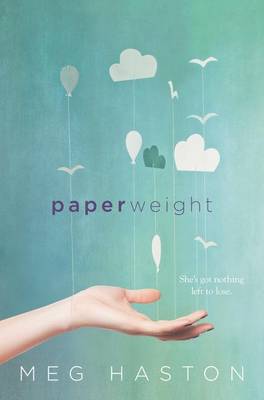Reviewed by celinenyx on
The death anniversary of the brother she killed is coming closer - and Stevie has it all worked out. On that day, she will die too. But then she gets sent to a treatment center by her father, making her plan a lot harder to execute.
The voice of the narrator of the story, Stevie, is very authentic. This gives the entire story a gravity and emotional impact that it might not have otherwise, but it also makes for incredibly uncomfortable reading. Stevie is being treated for an eating disorder, and her guilty, mean thoughts are displayed in full. She hates seeing fat - she hates seeing anything but skin and bone. Her own body filling out disgusts her, and eating is incredibly hard for her. Depending on what your own relationship with food is, Paperweight might make you uneasy or anxious, or its message might hit a bit too close to home.
An issue with books concerning this kind of topic is that the psychologist character is either a full-blown sadist or a flat caricature. Paperweight has a three-dimensional, sympathetic psychologist in Anna, also called Shrink by Stevie. Through glimpses of a back story, Anna is made into someone real, providing a perfect counterpoint to Stevie. Anna pushes her sometimes, and Stevie resents her for it, but she's also professional and cares about her work. Paperweight deserves all the credit for presenting a human psychologist.
Stevie's story of healing is a subtle one. There is no Hallmark epilogue in which everyone lives happily ever after in perfect harmony. By the end I wanted to know more about Stevie and the girls, even though the ending was quite satisfactory. Paperweight is a fantastic YA book on guilt, family, and eating disorders.
Reading updates
- Started reading
- 8 May, 2015: Finished reading
- 8 May, 2015: Reviewed
